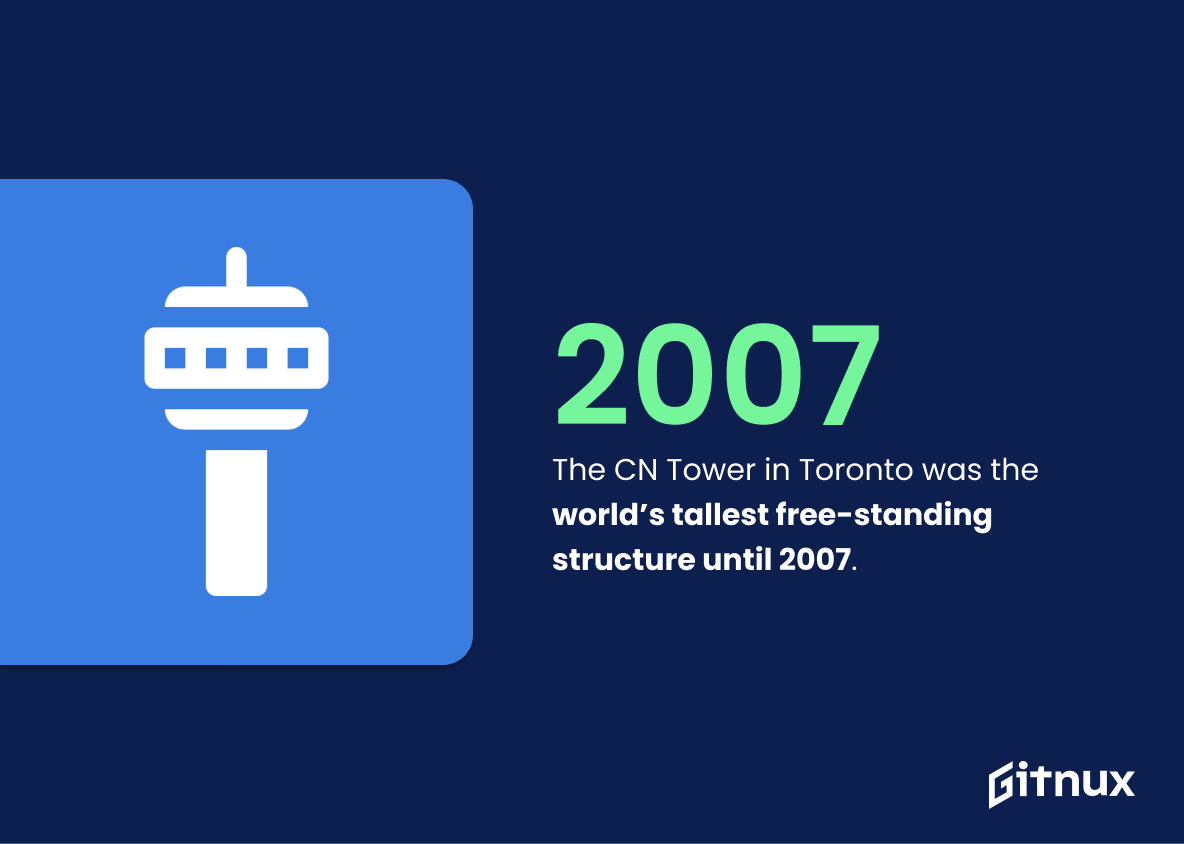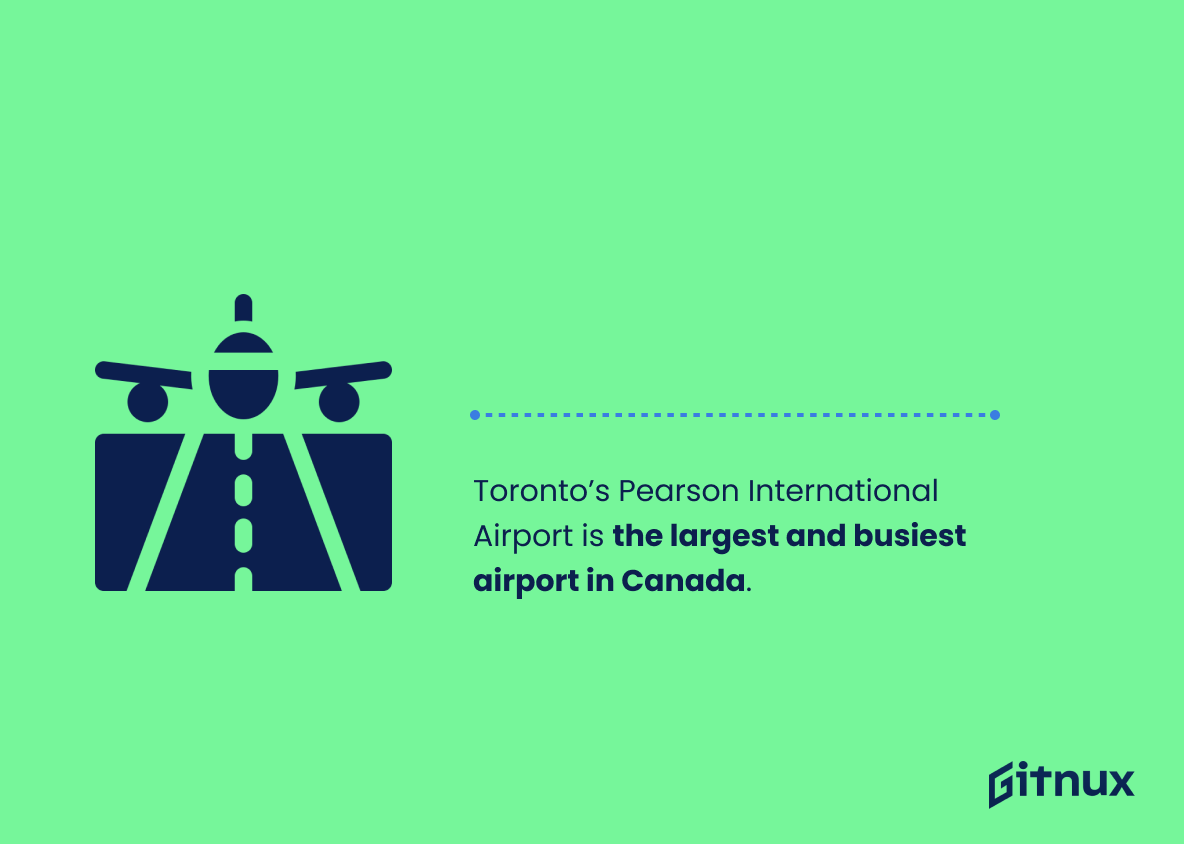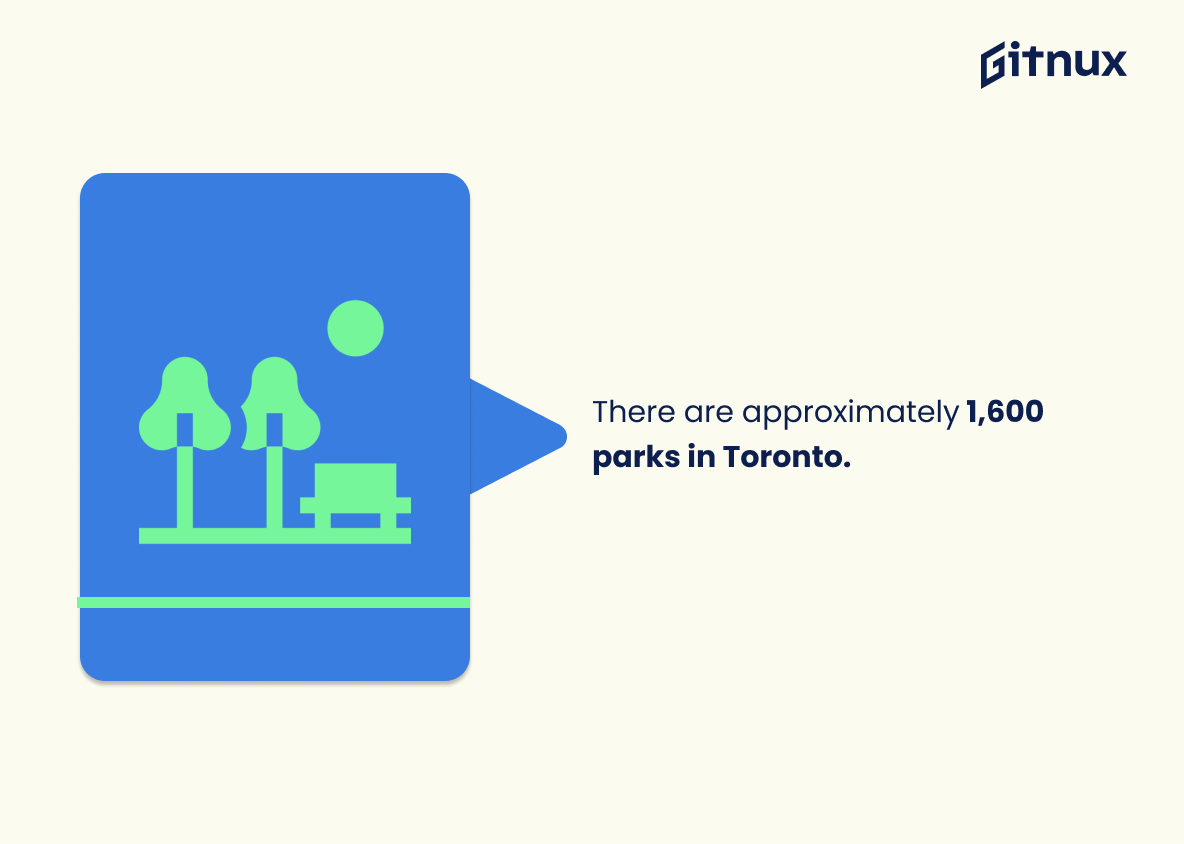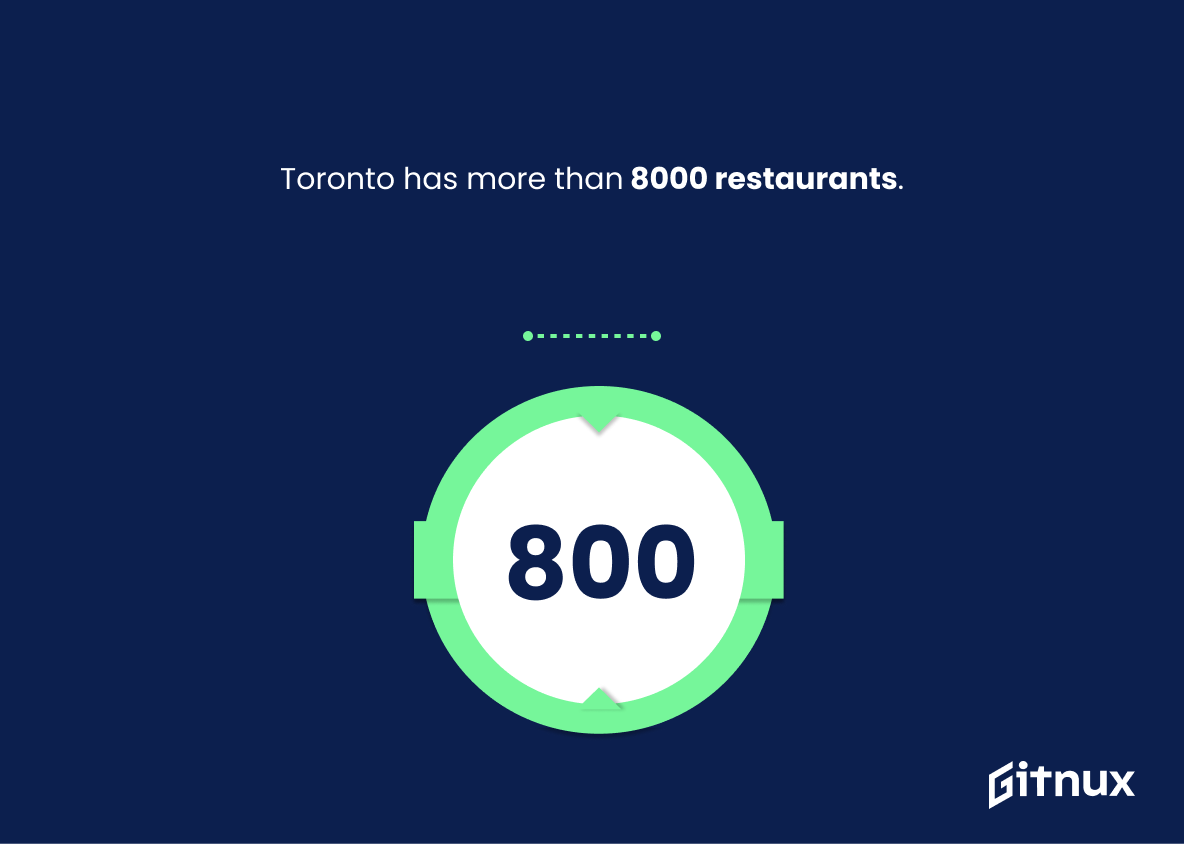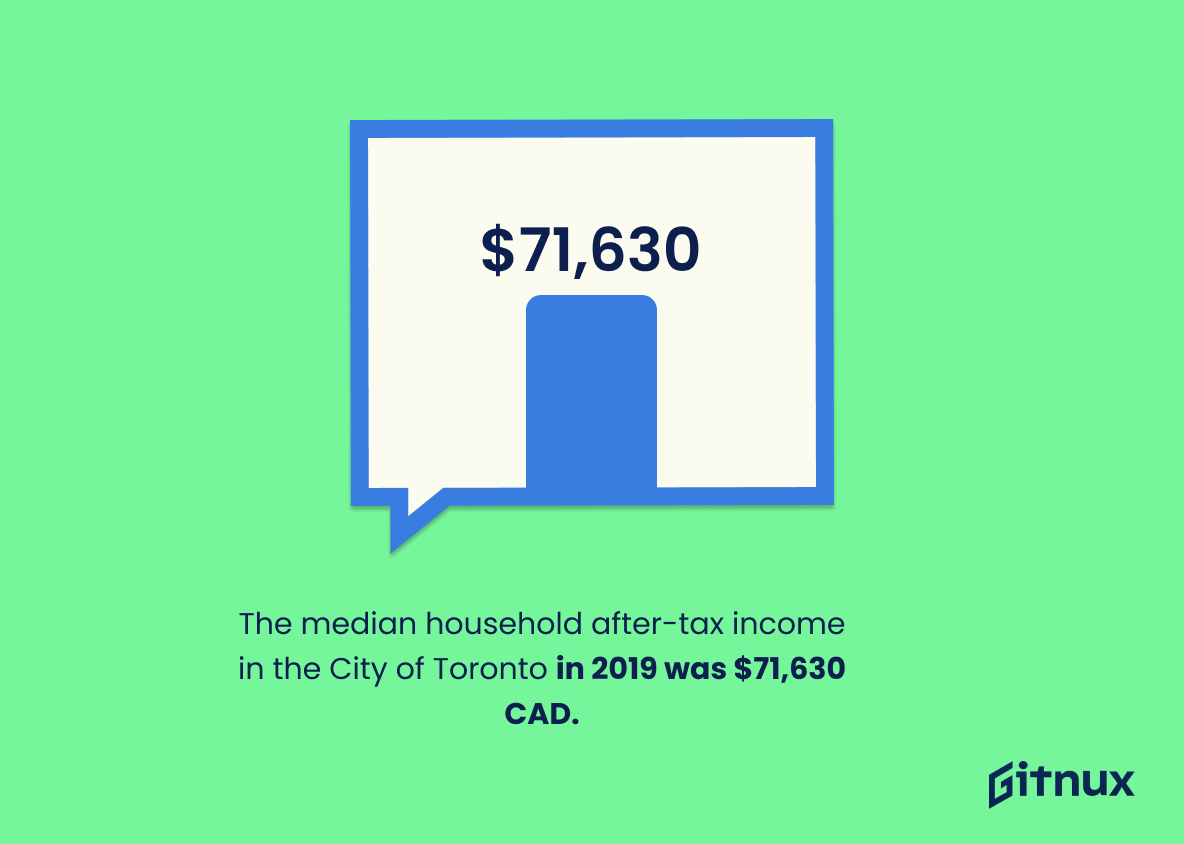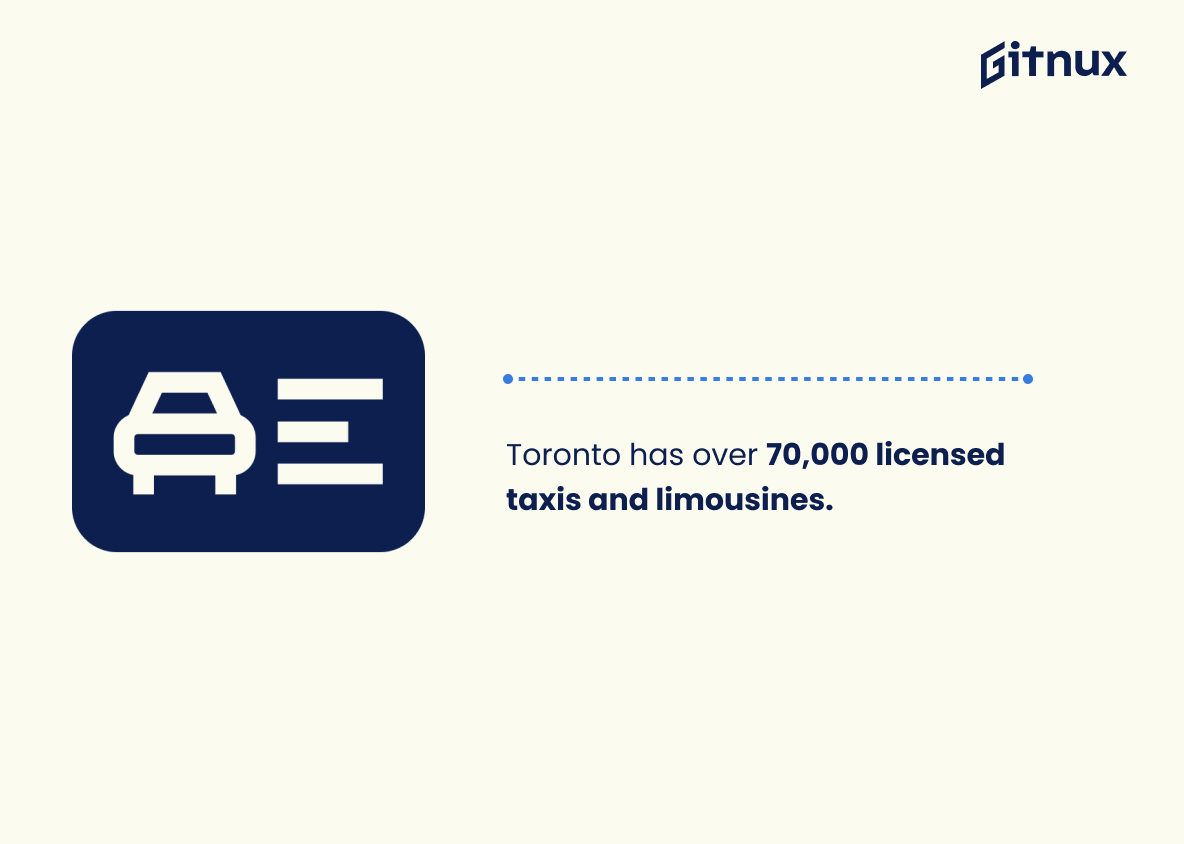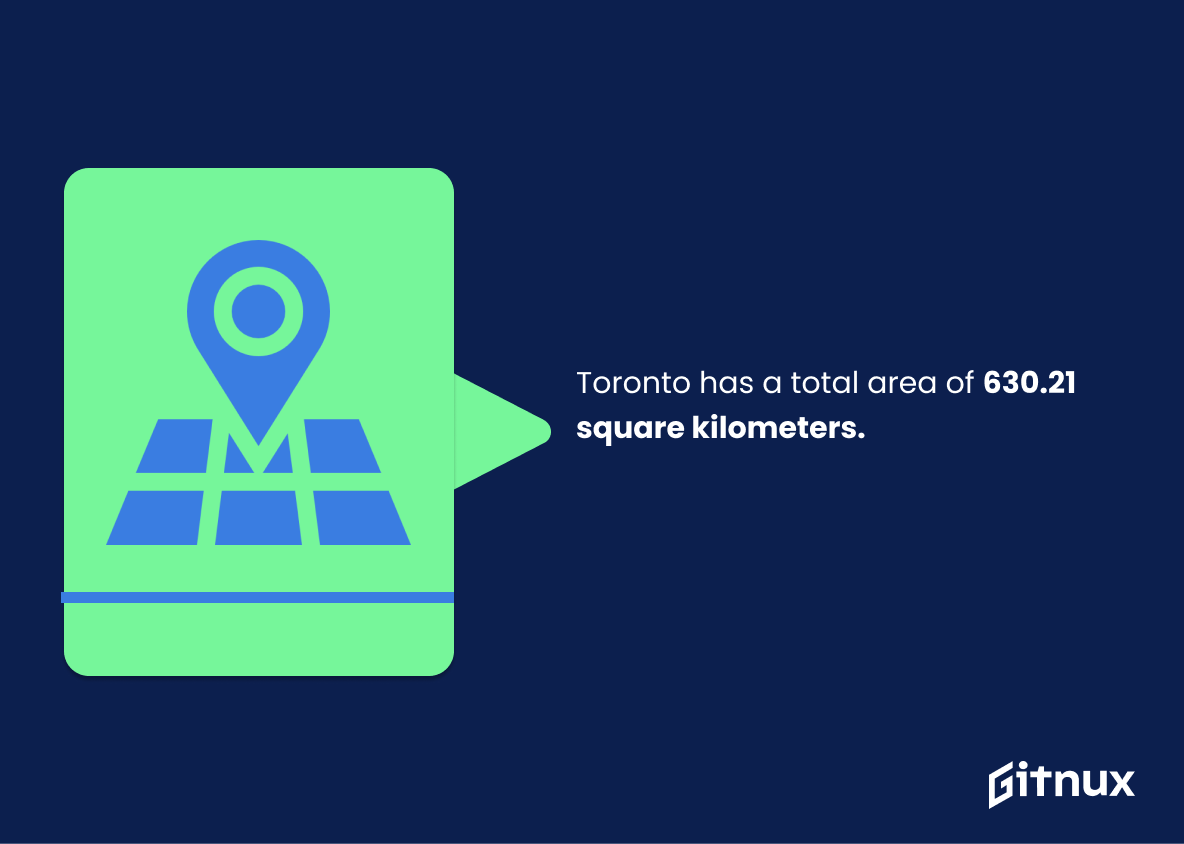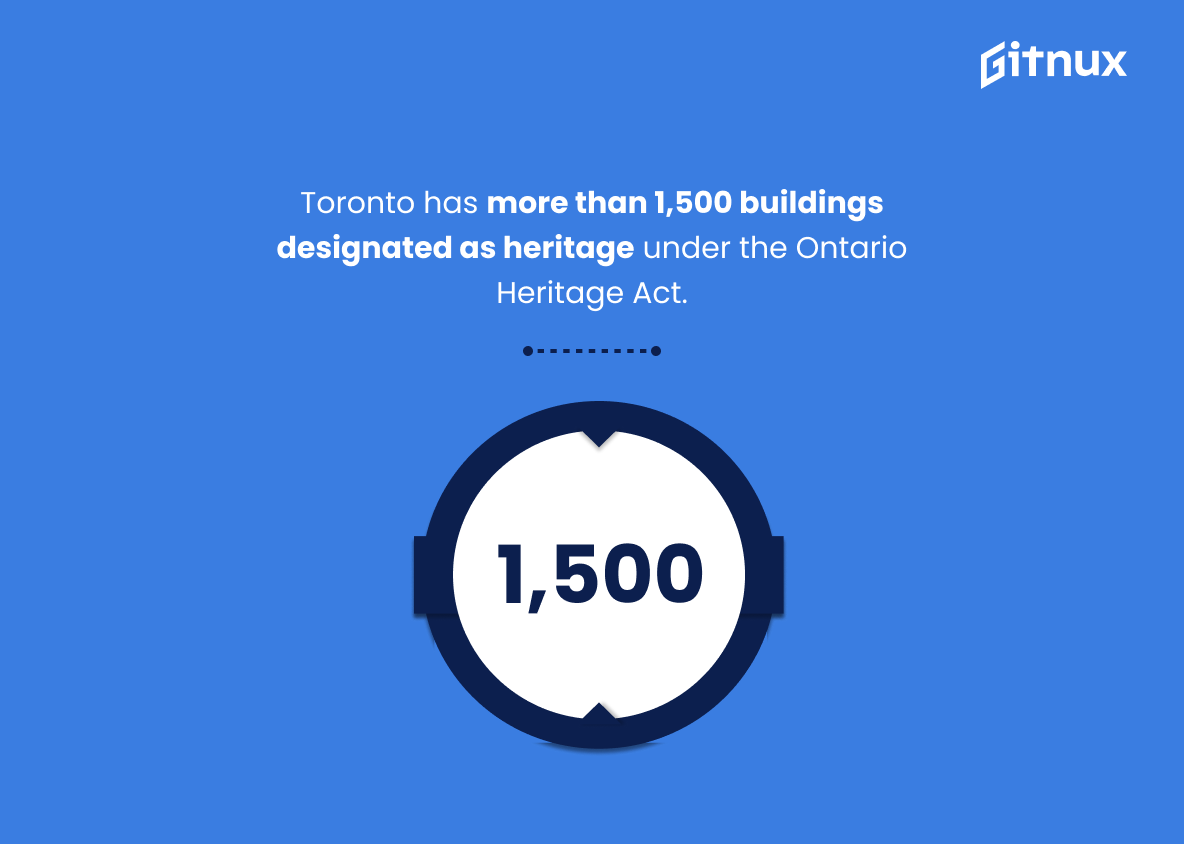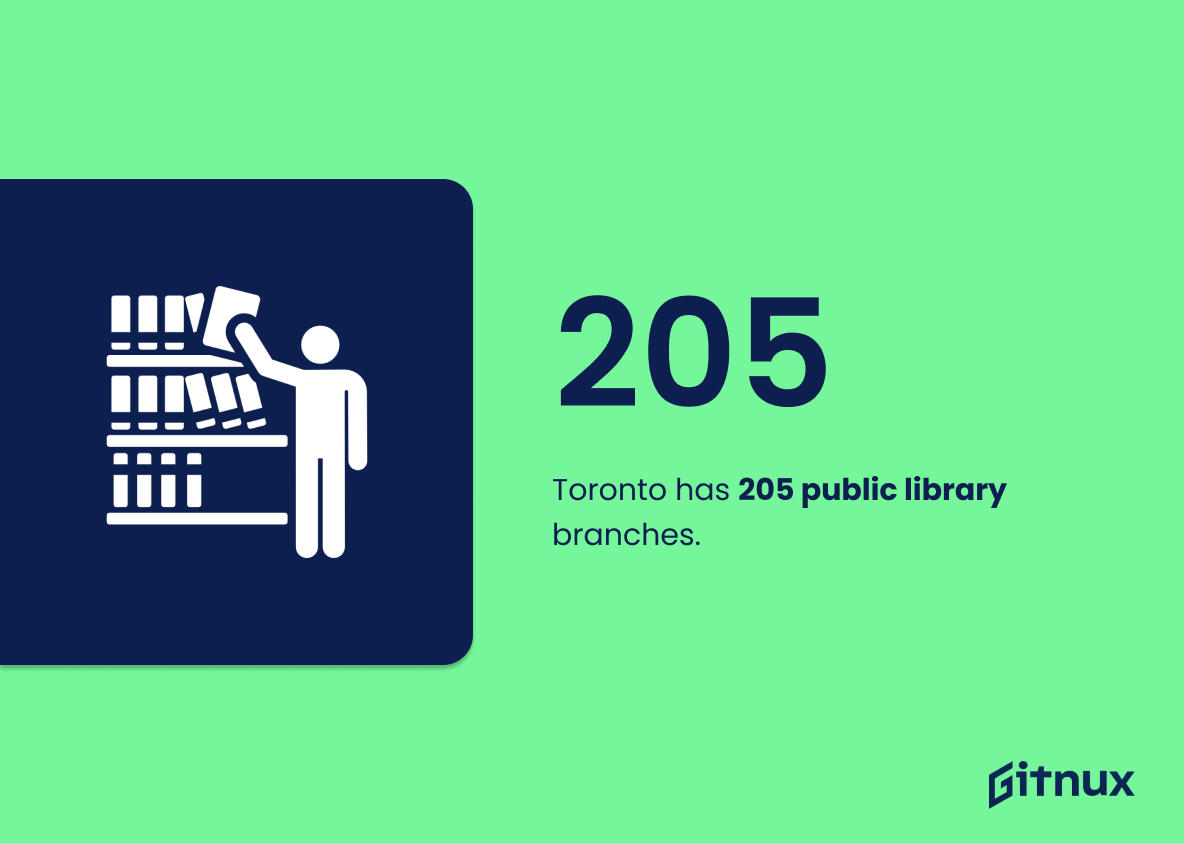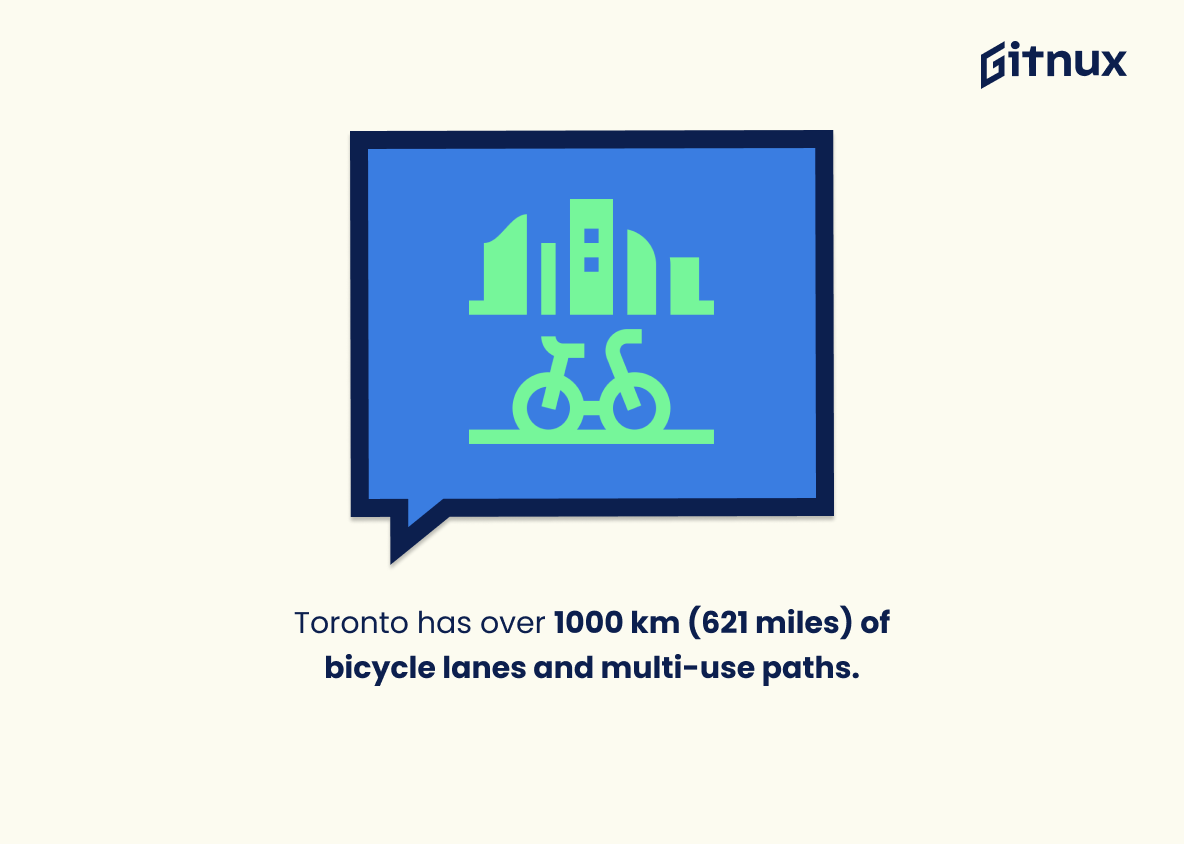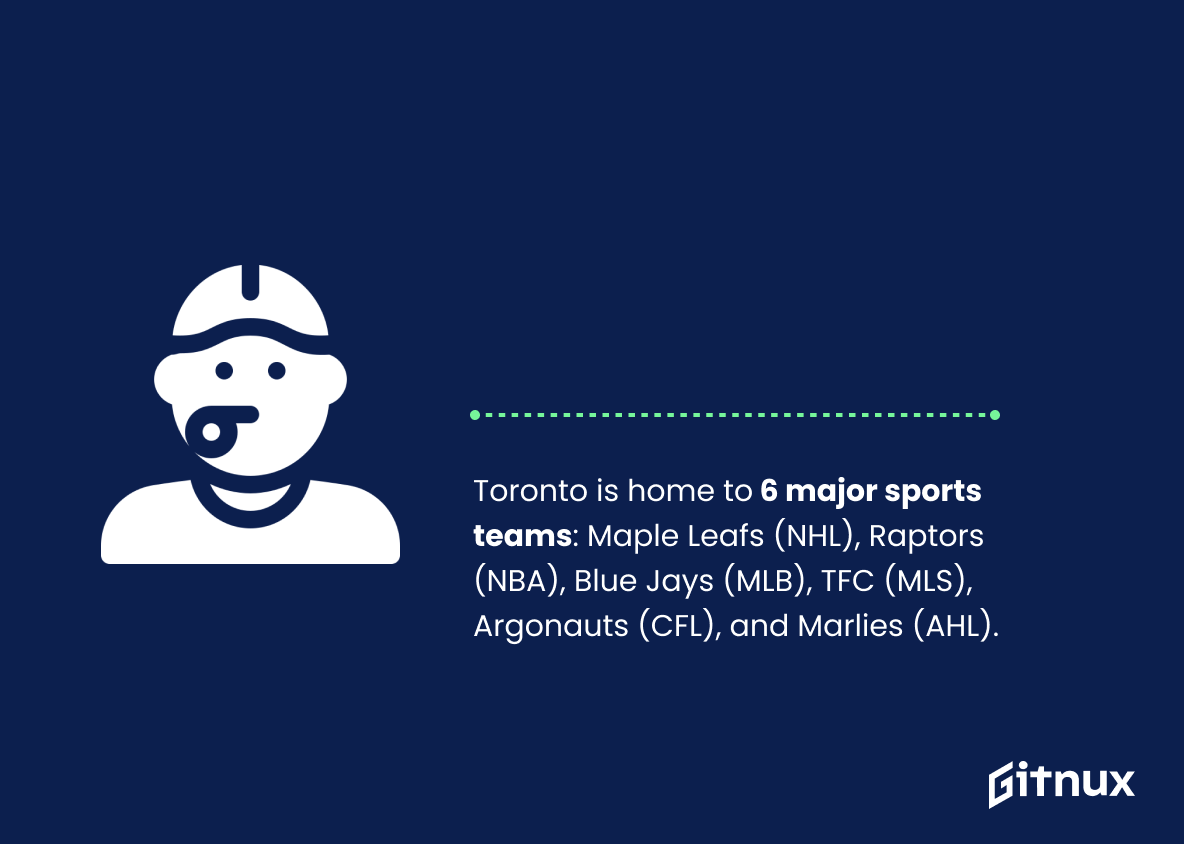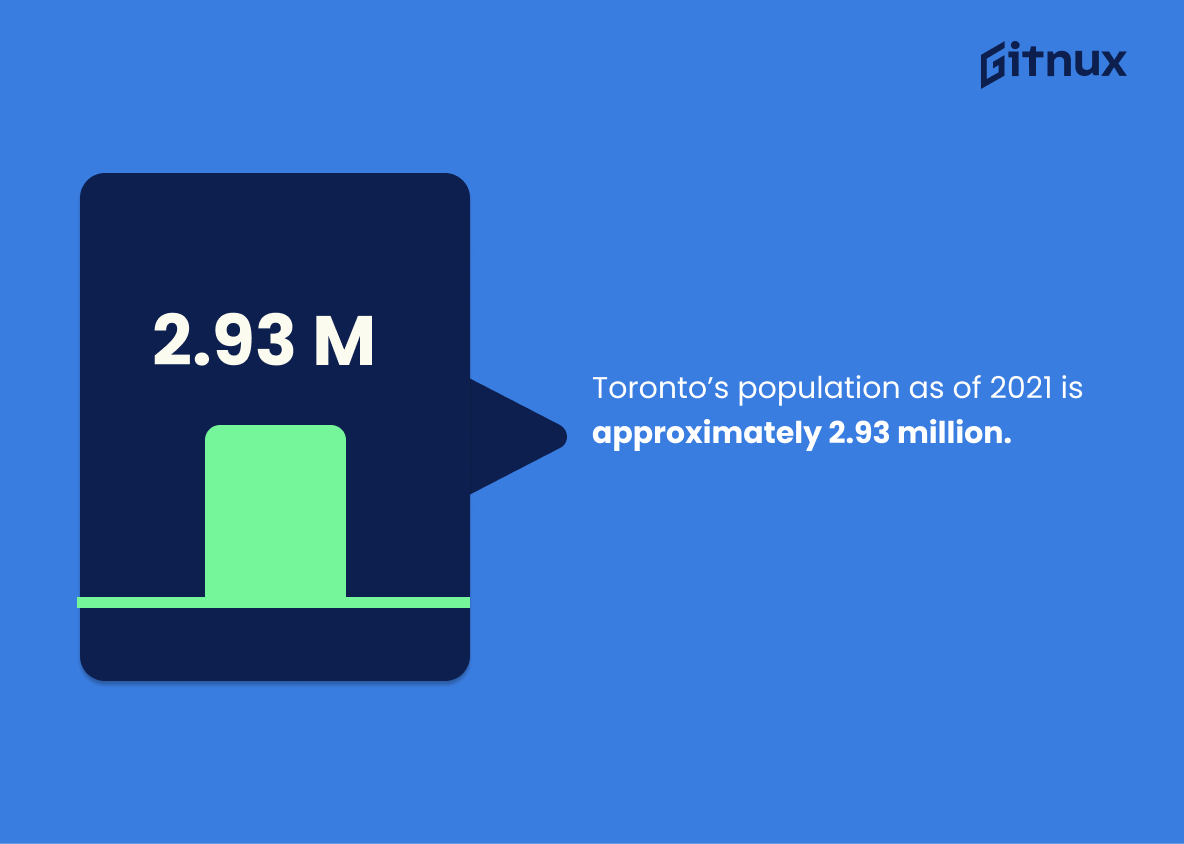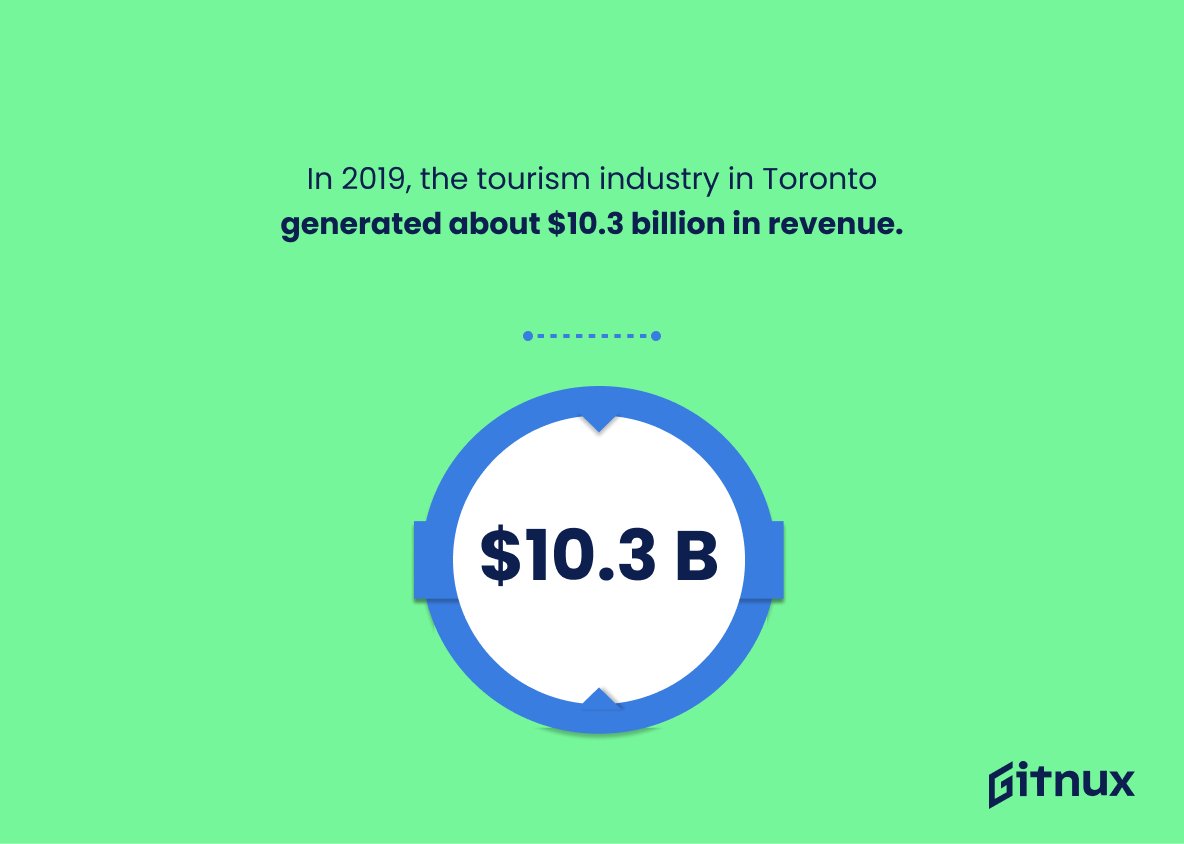Toronto is a vibrant and diverse city with an abundance of interesting facts and figures. From its population size to the number of parks, restaurants, businesses, film festivals, sports teams and more – there’s no shortage of fascinating statistics about Toronto. In this blog post we will explore 20 different stats that provide insight into what makes Toronto such a unique place to live in or visit.
Toronto Statistics Overview
The CN Tower in Toronto was the world’s tallest free-standing structure until 2007.
This statistic serves as a reminder of Toronto’s place in the world, highlighting the city’s impressive accomplishments. It speaks to the city’s ambition and drive to be a leader in the world, and serves as a source of pride for the people of Toronto.
Toronto hosts over 75 film festivals annually.
The fact that Toronto hosts over 75 film festivals annually speaks volumes about the city’s vibrant culture and entertainment scene. It’s a testament to the city’s commitment to the arts and its ability to attract people from all over the world to come and experience the city’s unique offerings. This statistic is a great reminder of why Toronto is such a great place to live and visit.
Toronto’s Pearson International Airport is the largest and busiest airport in Canada.
The fact that Toronto’s Pearson International Airport is the largest and busiest airport in Canada speaks volumes about the city’s importance as a hub of transportation and commerce. This statistic is a testament to Toronto’s status as a major player in the global economy, and serves as a reminder of the city’s significance in the world.
There are approximately 1,600 parks in Toronto.
This statistic is a testament to the city of Toronto’s commitment to providing its citizens with access to green spaces. It speaks to the city’s dedication to preserving and protecting its natural environment, and to providing its citizens with the opportunity to enjoy the outdoors. It is a reminder of the importance of parks and green spaces in urban areas, and of the need to continue to invest in these areas.
Toronto has more than 8000 restaurants.
This statistic is a testament to the sheer variety of culinary experiences available in Toronto. With over 8000 restaurants, the city offers a seemingly endless array of options for food lovers to explore. From traditional Canadian fare to international cuisines, Toronto has something for everyone. This statistic speaks to the city’s vibrant and diverse food culture, making it a great destination for foodies.
Toronto is home to approximately 230,000 businesses.
The sheer number of businesses in Toronto speaks volumes about the city’s economic potential. It is a testament to the city’s entrepreneurial spirit and its ability to attract and retain businesses of all sizes. This statistic is a reminder of the city’s vibrancy and its capacity to foster economic growth.
The median household after-tax income in the City of Toronto in 2019 was $71,630 CAD.
This statistic is a telling indication of the financial well-being of households in the City of Toronto. It provides insight into the average after-tax income of households in the city, which can be used to compare the financial health of Toronto households to those in other cities or regions. This data can be used to inform policy decisions and help identify areas of need in the city.
Toronto has over 70,000 licensed taxis and limousines.
This statistic is a testament to the sheer size and scope of Toronto’s transportation network. With over 70,000 licensed taxis and limousines, it’s clear that Toronto is a bustling metropolis with a wide variety of transportation options available to its citizens. This statistic speaks to the city’s commitment to providing reliable and efficient transportation services to its residents.
Toronto has a total area of 630.21 square kilometers.
The size of Toronto is an important statistic to consider when discussing the city’s overall makeup. Knowing the total area of 630.21 square kilometers gives us an idea of the scope of the city and how much space it occupies. This information can be used to compare Toronto to other cities and to understand the population density of the city.
Toronto has more than 1,500 buildings designated as heritage under the Ontario Heritage Act.
The fact that Toronto has more than 1,500 buildings designated as heritage under the Ontario Heritage Act speaks volumes about the city’s rich history and culture. It is a testament to the city’s commitment to preserving its past and honoring its roots. This statistic is a reminder of the city’s unique identity and its importance in the Canadian landscape.
Toronto has 205 public library branches.
The sheer number of public library branches in Toronto speaks volumes about the city’s commitment to providing its citizens with access to knowledge and resources. It is a testament to the city’s dedication to education and literacy, and serves as a reminder of the importance of learning and growth.
Toronto has over 1000 km (621 miles) of bicycle lanes and multi-use paths.
This statistic is a testament to Toronto’s commitment to providing safe and accessible cycling routes for its citizens. It highlights the city’s dedication to promoting active transportation and creating a healthier, more sustainable environment. Furthermore, it demonstrates the city’s willingness to invest in infrastructure that encourages people to get out and explore the city on two wheels.
Toronto is home to 6 major sports teams: Maple Leafs (NHL), Raptors (NBA), Blue Jays (MLB), TFC (MLS), Argonauts (CFL), and Marlies (AHL).
This statistic is a testament to Toronto’s status as a major sports hub. It speaks to the city’s commitment to providing its citizens with a wide range of professional sports teams to cheer for and support. It also highlights the diversity of sports available in the city, from the traditional major leagues to the more niche leagues like the AHL and MLS. This statistic is a great reminder of the city’s vibrant sports culture and its commitment to providing its citizens with a wide range of sports entertainment.
Toronto’s population as of 2021 is approximately 2.93 million.
The fact that Toronto’s population is currently estimated at 2.93 million is an important piece of information when discussing Toronto’s statistics. It provides a snapshot of the city’s size and growth, and can be used to compare Toronto to other cities in terms of population. Additionally, it can be used to analyze the city’s economic and social trends, as well as its infrastructure needs.
In 2019, the tourism industry in Toronto generated about $10.3 billion in revenue.
This statistic is a testament to the immense economic impact of the tourism industry in Toronto. It highlights the importance of the sector in driving the city’s economy and generating revenue for businesses and the local government. It also serves as a reminder of the importance of investing in the tourism industry to ensure its continued success and growth.
The average selling price of a home in Toronto in December 2020 was $932,222 CAD.
This statistic is a telling indication of the current state of the Toronto housing market. It reveals that the average selling price of a home in Toronto in December 2020 was significantly higher than in previous years, indicating a strong demand for housing in the city. This data point is an important piece of information for anyone looking to buy or sell a home in Toronto, as it provides insight into the current market conditions.
Toronto has over 50 film and television studios.
The fact that Toronto has over 50 film and television studios is a testament to the city’s vibrant and creative culture. It speaks to the city’s ability to attract and foster talent in the entertainment industry, making it a hub for film and television production. This is an important statistic that highlights the city’s potential to become a major player in the entertainment industry.
Conclusion
Toronto is a vibrant and diverse city with many unique features. It has the fourth largest population in North America, more than half of its residents belonging to visible minority groups, and over 8000 restaurants. The CN Tower was once the world’s tallest free-standing structure until 2007, while Pearson International Airport is Canada’s busiest airport. There are also numerous parks, film festivals, businesses and sports teams that make Toronto an exciting place to live or visit. With a median household after-tax income of $71 630 CAD as well as over 50 film studios and 70 000 licensed taxis/limousines available for transportation needs – it’s no wonder why so many people choose this great city.
References
0. – https://www.trreb.ca
1. – https://www.worldatlas.com
2. – https://www.seetorontonow.com
3. – https://www.cntower.ca
4. – https://www.2.statcan.gc.ca
5. – https://www.torontopearson.com
6. – https://www.trca.ca
7. – https://www.50.statcan.gc.ca
8. – https://www.open.toronto.ca
9. – https://www.torontopubliclibrary.ca
10. – https://www.toronto.ca
